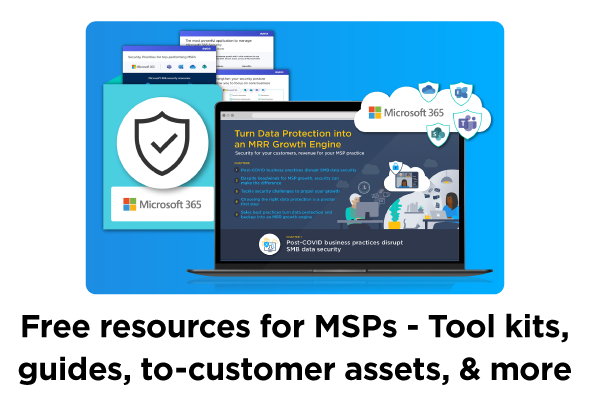Leverage automation that extends across the full customer lifecycle from assessing Teams activity to streamlining ongoing support and management
Hybrid Work is driving Microsoft Teams adoption and usage
With now 145 million daily active users (a 700% increase since the start of the pandemic), it’s clear Teams is at the epicenter of the growing trend of Hybrid Work. If you joined Microsoft Inspire last month, you likely heard Jared Spataro, Corporate Vice President for Microsoft 365, share the vision for Teams as „the front end of a new world of work.“ More than 73% of workers want flexible work options to continue and businesses are increasing their spend on collaboration apps to securely drive productivity.
Microsoft estimates that MSPs can increase MRR from $55 to $85 per seat by fully monetizing more advanced workloads like Teams and Cloud Security. Savvy partners are building on the strength of their existing services portfolios to expand the reach of Teams-related services. But pivoting this massive potential into business reality is no easy feat.
Help customers make the most of their Teams environment
The viability of Microsoft Teams as a recurring revenue engine is dependent on the ability to drive deeper customer adoption and usage. MSPs may need to help customers overcome apprehensions around securely communicating, collaborating, accessing data, and sharing information in a cloud environment.
To effectively support and guide SMBs in their Teams journey, MSPs are looking to address questions that extend across business strategy, technical readiness and operational execution, and security. Of course, all these challenges get amplified even further as an MSP – with the increased complexity of deploying, configuring, monitoring, managing, and supporting the business effectiveness of Teams across multiple customers.
Easily report on Teams activity across customers with SkyKick Cloud Manager
At the start of the COVID-19 pandemic, many SMBs quickly deployed Teams to ensure business continuity amid remote work scenarios. Alongside the robust self-service capabilities, for many customers this has resulted in a sprawl of Teams – making it exceptionally challenging for employees to find, access, and manage critical data. And for the MSPs that support Teams across many customers, this sprawl and lack of standardization is driving up an increased number of help desk calls and management challenges.
Being able to assess and monitor Microsoft Teams usage is essential in helping customers secure and maximize productivity. This is where SkyKick Cloud Manager comes in. Cloud Manager can help you efficiently get broad insight into customers’ Teams environments to optimize key areas and close gaps.
For example, you can leverage a ready-to-use cross-customer command to get an activity summary of Microsoft 365 Groups and Teams, including Groups or Teams that are potentially obsolete and Groups that should be upgraded to Teams. You can then use this information to quickly perform actions like archiving and removing Teams all within the same platform. It’s easy to run the command for one-time Teams activity assessments or leverage it for ongoing monitoring of Teams metrics to engage customers more deeply around adoption strategies or services.
The report includes a CSV file with the following details for every selected customer:
|
|
Take it further – explore 3 winning strategies to accelerate your Teams Practice
In addition to the Teams activity reporting use case demonstrated above, Cloud Manager provides holistic automation across the full customer lifecycle to help MSPs build a more profitable managed service offering around Teams.
This enables MSPs to efficiently acquire customers with simplified deployments, differentiate and provide value-add services around security, and streamline ongoing support and management in the help desk.
To explore these 3 strategies in greater depth, we invite you to view our recent webinar on-demand.


